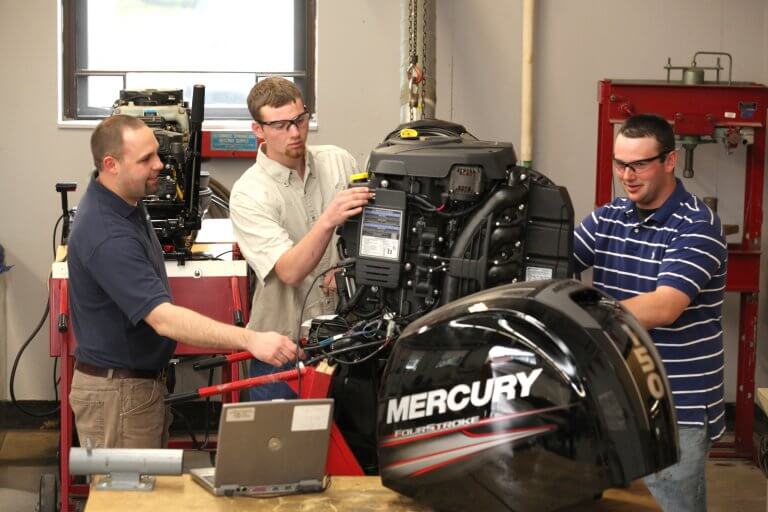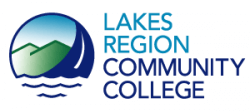I. Policy Statement
The CCSNH and its Colleges are committed to maintaining the safety and security of its faculty, staff, students and visitors and to maintaining an environment conducive to quality education, individual privacy, diversity, and freedom of expression. Accordingly, the CCSNH and its Colleges recognize that in implementing a video surveillance system, consideration must be given to the duty to promote a safe and secure environment and an individual’s right to privacy.
Video surveillance is used by the CCSNH and its Colleges to promote a safe and secure college environment by:
- Deterring acts of harassment, violence, vandalism and theft;
- Aiding in the identification of individuals who commit such acts; and
- Assisting in the investigation of any crime committed on college property.
II. Policy Purpose
This policy provides guidelines for the use of video surveillance on CCSNH and College property in a way that enhances safety and security, while at the same time respects the reasonable expectation of privacy held by its faculty, staff, students and visitors.
III. Scope of Policy
This policy applies to all faculty, staff, students and visitors on CCSNH and College property.
The following uses of video technology are not governed by the provisions of this policy:
- Academic Use This policy does not apply to the legitimate academic use of video cameras for educational purposes.
- Private Video Cameras This policy does not apply to private video cameras owned and operated by members of the campus community.
- Law Enforcement Surveillance This policy does not apply to cameras used covertly by any law enforcement agency for criminal surveillance pursuant to proper legal authority.
- Unrelated to Surveillance This policy does not apply to video cameras or webcams established for reasons unrelated to surveillance activity, including remote monitoring of facilities construction to ascertain project progress, campus public relations initiatives or videotaping of athletic or other events.
IV. Notification of Video Surveillance and Policy
The CCSNH college community will be notified that cameras may be utilized. Postings may accompany cameras and may appear on signs posted at campus entrances. This policy will be made available to all students, faculty, staff and visitors by posting on CCSNH’s and each College’s website and printing in appropriate publications.
V. Camera Placement
In approving camera locations, CCSNH college management shall be guided by the following rules.
- Public Areas Video surveillance shall be restricted to public areas. These may include, but are not limited to, the following areas:
- Streets, alleys, service drives, parking lots and loading docks
- Athletic fields, gymnasiums and auditoriums
- Dining facilities and other public gathering spaces
- Building entrances, lobbies, foyers, and hallways
- Classrooms, meeting rooms, programming rooms, laboratories and libraries
- Cash handling areas and safes
- Sidewalks and other pedestrian walkways
- Private Areas Video surveillance is limited to those areas where individuals would not have a reasonable expectation of privacy. Accordingly, except when specifically authorized, such as through the use of a search warrant, video surveillance shall not be approved for use in or directed into any of the following places:
- Bathrooms, shower areas, locker and changing rooms
- Private offices, except as noted below
- Rooms used for medical, physical or mental health treatment including the entrances, exits, lobbies or hallways of on-campus health centers and counseling centers
- Residence hall rooms
Video surveillance may be approved for use in private offices for the limited purpose of safeguarding money, documents, pharmaceuticals or supplies. Cameras used for video surveillance of such work areas shall not be directed or zoomed to view computer screens.
- Residential Housing Hallways and Lounges Video surveillance for safety and security purposes will not be directed into residential interior hallways and lounges, unless the College President or designee determines that a specific safety or security risk exists.
- Placebo Cameras CCSNH and its Colleges will not utilize inoperative, perfunctory, placebo, or “for looks-only” video surveillance equipment.
VI. Monitoring
The existence of video surveillance does not imply or guarantee that the cameras will be monitored continuously in real time or otherwise.
All CCSNH and college employees involved in monitoring video surveillance will perform their duties in accordance with the practices outlined in this policy. The following guidelines shall apply to on-site and remote monitoring of video surveillance cameras at all CCSNH property, Colleges and academic centers:
- Generally. Monitoring of video surveillance cameras shall be conducted in a manner that is professional, ethical, legal and consistent with all CCSNH and college policies, including, but not limited to, those governing sexual harassment and equal employment opportunity. Camera monitors shall monitor based on suspicious behavior, not individual characteristics. Monitoring individuals based upon a person’s race, gender, gender identity or expression, sexual orientation, national origin, disability, or other protected characteristic is strictly prohibited.
- Training All personnel involved in the supervision, application, use or monitoring of video surveillance technology at CCSNH and its Colleges will meet the following requirements:
- Be trained in the technical, legal and ethical parameters of appropriate video camera use; and
- Receive a copy of this policy and provide a written acknowledgement that they have read and understood its contents.
- Audio Recordings The video surveillance systems used by the CCSNH and its Colleges will record video only, no audio.
- Evaluations of Employee Performance Video surveillance cameras will not be used by the CCSNH or its colleges to monitor or evaluate employee performance or to monitor employees during their non-working time. Video surveillance cameras may be used, however, to monitor a student or employee work area, such as an area with financial transactions, even if there is only one student, faculty or staff member in that area. Video surveillance cameras used to monitor a work area will not be used to view the contents of computer screens.
- Data Collection Video surveillance cameras will not be used to collect data about behavior or groups of individuals using an area over a period of time such as parking patterns or levels and types of use of study or recreational areas.
VII. Storage
Video tapes or other media will be stored and transported in a manner that preserves security. Further, recorded images not related to or used for an investigation shall be kept confidential and destroyed on a regular basis. Accordingly, the following guidelines regarding the storage of video surveillance records shall be strictly adhered to:
- Location Video surveillance records shall be stored in a secure location with access limited to authorized CCSNH and/or College personnel only.
- Timeframe Generally, video surveillance records shall be stored for a period of not less than 30 days, after which they will be promptly erased, unless retained as part of an internal investigation, criminal investigation, court proceedings (criminal or civil) or other bona fide use, as approved by CCSNH and/or College President or designee. Additionally, CCSNH and/or College President or designee may determine that video surveillance records of identified high priority areas be stored for a period of not less than 90 days before being erased.
- Alterations No attempt shall be made to alter any part of any surveillance recording. If CCSNH and/or College President or designee, or law enforcement officials, however, determine that it is necessary to release video surveillance records as set forth in section VIII, the faces and identifying features of all those on the video that are not of interest to the investigation shall be blurred prior to the release of such records.
- Access Log An access log shall be maintained by CCNSH and/or each College of all instances of access to, or use of, surveillance records. This log shall include the date, time, and identification of the person or persons to whom access was granted, as well as a summary of the reason for which access was necessary.
VIII. Release of Information
Recorded information obtained through video monitoring will only be released when authorized by the Chancellor and/or the President of the College, according to procedures established in this policy. The following guidelines will govern dissemination of recordings obtained through use of the surveillance technology:
- Law Enforcement Purposes Information obtained through video monitoring will be used for security and law enforcement purposes, and CCSNH or the College will cooperate and assist local law enforcement officials as requested with criminal investigations. This includes providing copies of video recordings within CCSNH’s or the College’s possession.
- Commercial Use Under no circumstances shall the contents of any captured video recordings be exploited for purposes of profit or commercial publication, nor shall such recordings be publicly distributed except as may be required by law.
- Release Pursuant to Valid Judicial Orders Video recordings will be released as required by subpoenas or other judicial process or orders after consultation with CCSNH’s and/or the College’s legal counsel.
IX. Destruction or Tampering with Video Surveillance Technology
Any person who tampers with or destroys a video surveillance camera or any part of the video surveillance system will be subject to appropriate administrative and/or disciplinary action, as well as possible criminal charges.
X. Violation of This Policy
Violation of policy will result in appropriate administrative and/or disciplinary action consistent with the rules and regulations governing students and/or employees of CCSNH and its Colleges, which may include dismissal or expulsion for students or discharge for employees. Any information obtained in violation of this policy may not be used in a disciplinary proceeding against a member of CCSNH or its College faculty, staff, or student body.


